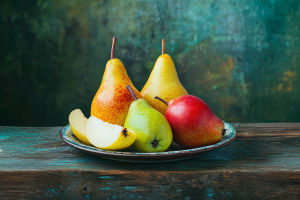We all love corn, right? It's sweet, crunchy, and irresistible—especially when it's fresh. But did you know that corn is more than just delicious? It's packed with natural vitamins and nutrients that can benefit our health in surprising ways.
In fact, fresh corn is much more nutritious than older, dried varieties. It contains plenty of fiber, which helps with digestion and can ease constipation. But what exactly are the vitamins that corn offers? Let's dive into the amazing nutritional benefits of this golden grain.
5 Amazing Health Benefits Of Corn/Maize/Cholam
Video by Netmeds.com
The Rich Nutritional Value of Corn
Corn is not just tasty; it's a powerhouse of nutrition! When we think of corn, we often focus on its fiber content, but there's much more to it than that. Fresh corn is an excellent source of several essential vitamins and nutrients that our bodies need to function properly. For example, did you know that corn contains a high level of vitamin E during its peak freshness? This vitamin plays a vital role in promoting cell division and slowing down the aging process of our cells. For older adults, it can even help slow down cognitive decline. Corn truly is one of nature's best brain food!
Vitamin E: Corn's Special Gift
When it comes to corn's vitamin content, vitamin E stands out as one of the most significant. This powerful antioxidant helps to protect our cells from oxidative damage and promotes healthier skin. In addition to slowing down aging, vitamin E also plays a role in reducing cholesterol levels and preventing the buildup of cholesterol in blood vessels. This is especially beneficial for preventing heart disease, high blood pressure, and other cardiovascular problems. So, adding corn to our diet can help keep our hearts and skin healthy!
How Corn Supports Heart Health
Corn doesn't just contain vitamin E; it also contains healthy fats, including linoleic acid. This essential fatty acid helps reduce cholesterol levels in the body, preventing it from accumulating on the walls of blood vessels. As a result, corn can be an effective food in preventing heart disease and improving overall cardiovascular health. Additionally, the high fiber content in corn works wonders for our cholesterol levels. Fiber binds with cholesterol and helps flush it out of the body, further reducing the risk of developing conditions like atherosclerosis, hypertension.
Lysine: An Essential Amino Acid
Another valuable nutrient that corn provides is lysine, an essential amino acid that our bodies cannot produce on their own. Lysine plays an important role in maintaining muscle tissue, supporting immune function, and helping our bodies absorb calcium. Unlike many other grains, corn is a great source of lysine, making it a perfect addition to a well-balanced diet. Special varieties of corn, such as sweet corn, have even higher levels of lysine, making them an excellent option for people looking to boost their protein intake and overall health.
Dietary Fiber: Keep Your Digestive System Healthy
Let's not forget about corn's high fiber content. Fiber is essential for digestive health because it helps regulate bowel movements and prevent constipation. It also helps maintain the balance of bile salts and cholesterol in the body, preventing the formation of gallstones. The fiber in corn is also beneficial for reducing the risk of colon cancer by binding to harmful substances in the intestines and expelling them from the body. By promoting healthy digestion and regular bowel movements, corn helps us stay comfortable and healthy.
Other Health Benefits of Corn
In addition to its vitamins and fiber, corn also offers other health benefits. It is known to have properties that help with weight management and can reduce the risk of developing certain cancers. The antioxidants found in corn help fight oxidative stress, which has been linked to a wide range of chronic diseases, including cancer. Corn's nutrients, such as vitamin A, can also support eye health, reducing the risk of dry eyes and other age-related vision problems.
Conclusion: Enjoy Corn for Better Health
As we can see, corn is more than just a tasty snack. It's a nutrient-dense food that provides us with a variety of vitamins, amino acids, and fiber that can enhance our overall health. Whether we enjoy it fresh, grilled, or even in our favorite cornmeal dishes, there's no denying that corn is a great addition to our diets. So, the next time we're enjoying a cob of sweet corn, we can feel good knowing we're feeding our bodies with all these amazing natural benefits.
Let's make corn a regular part of our meals to support our heart, brain, and digestive health. Keep exploring the wonders of nature's bounty, Lykkers!


